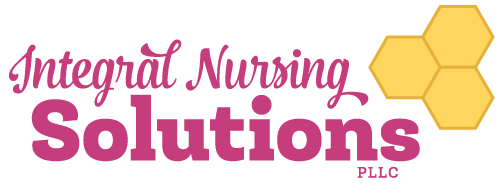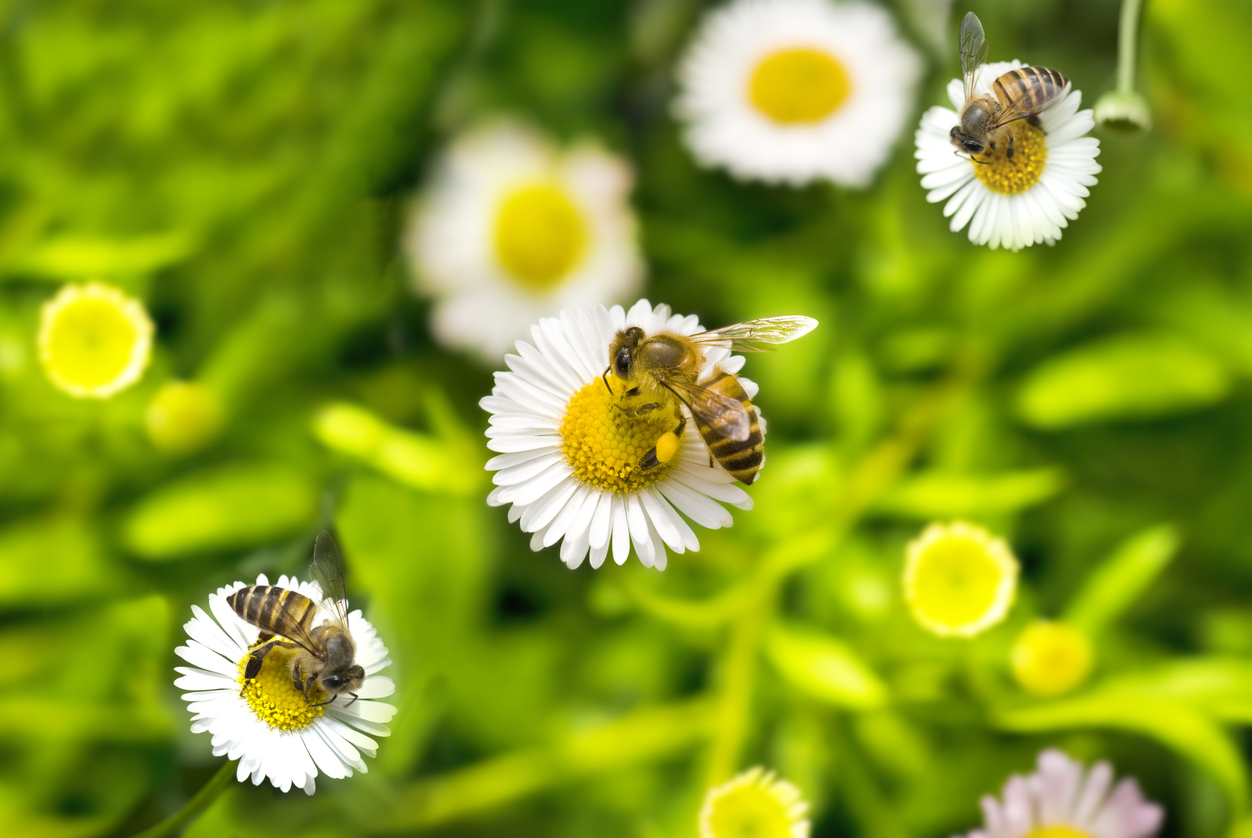The parallels between the nursing profession and bees begin with the need to understand both through the lens of holism, as I discovered when I became a beekeeper last year. Both are mostly female, hard working and essential to the well-being of large groups of people. Nursing is the nation’s largest health care profession with more than 3.6 million registered nurses practicing nationwide. Most health care services involve some form of care by nurses. Honey bees are responsible for 80 percent of the pollination of about one-third of the human diet . Many of the tastiest flowering crops we enjoy, apples, nuts, avocados, soybeans, asparagus, broccoli, celery, squash and cucumbers are pollinated by honey bees as are citrus fruit, peaches, kiwi, cherries, blueberries, cranberries, strawberries, cantaloupe and other melons.
Bees are considered super organisms. The colony of bees is the organism and the bees within the colony have prescribed roles they evolve through as they age. Eventually, all the worker bees, which are all female become foragers, going out to collect water, nectar, and pollen to make honey and to feed the hive. Bees have been dying in large numbers causing colony collapse which is affecting our food chain. Colony collapse seems to be related t o the bees’ compromised immune systems resulting from the use of the carcinogenic and neurotoxic chemicals neonicotinoids and glyphosate, which people spray on crops. Subsequently, the bees have become more susceptible to viral and bacterial infections. When enough individual bees become sick from infections the colony becomes vulnerable to attack by beetles and/or moths and the colony dies. So beekeepers care for the hive by watching for signs of disease in individual bees, doing their best to keep the bees strong and healthy and trying to treat the causes of the symptoms.
o the bees’ compromised immune systems resulting from the use of the carcinogenic and neurotoxic chemicals neonicotinoids and glyphosate, which people spray on crops. Subsequently, the bees have become more susceptible to viral and bacterial infections. When enough individual bees become sick from infections the colony becomes vulnerable to attack by beetles and/or moths and the colony dies. So beekeepers care for the hive by watching for signs of disease in individual bees, doing their best to keep the bees strong and healthy and trying to treat the causes of the symptoms.
Coming back to nursing, the profession might also be considered a superorganism, made up of many subspecialties which depend upon the evolution of professional nurses. All nurses graduate, take the NCLEX and go through Brenner’s prescribed stages as they develop professionally. Nurses start off focusing on the skills and techniques and after mastery, they begin to practice the art of nursing. In the current health care climate, it is essential for each nurse to learn ways to stay healthy and strong, setting boundaries that honor themselves, employers and patients. When nurses don’t care for themselves like bees, their survival is at risk. They can develop burnout, compassion fatigue, and Vital exhaustion.
 Today the profession depends upon supporting nurses’ vitality and keeping up our numbers. If you don’t practice Self care, if the educators and leaders of the profession, like the bee keepers, do not make concerted efforts to provide support and education in the prevention of unhealthy and unsafe situations, the profession is weakened and becomes at risk of losing its prominent role in designing and delivering optimal health care. Over the years other health care workers have nibbled away at the edges of nursing roles because we did not care for our boundaries and the profession as a whole. To mention a few, social workers, physical therapists and med techs now perform what were once nursing duties and tasks. Today there are health care navigators and coaches who are not nurses providing similar services but without a nursing focus on holism and a deep theoretical background to support their work.
Today the profession depends upon supporting nurses’ vitality and keeping up our numbers. If you don’t practice Self care, if the educators and leaders of the profession, like the bee keepers, do not make concerted efforts to provide support and education in the prevention of unhealthy and unsafe situations, the profession is weakened and becomes at risk of losing its prominent role in designing and delivering optimal health care. Over the years other health care workers have nibbled away at the edges of nursing roles because we did not care for our boundaries and the profession as a whole. To mention a few, social workers, physical therapists and med techs now perform what were once nursing duties and tasks. Today there are health care navigators and coaches who are not nurses providing similar services but without a nursing focus on holism and a deep theoretical background to support their work.
Since Florence Nightingale, nurses have provided care “focusing on wellness and the interrelationship of humans, events and the environment” p 51 CarlaMariano Holistic Nursing 5th edition. Using the nursing process you do your best to prevent untoward situations. You look at the spiritual, emotional, mental, physical, environmental, and economic aspects of situations and create with your client a plan of care that addresses the well-being of all. No other group of professionals has such a varied, holistic and comprehensive vision. Just as the honeybee has the glorious job of pollinating flowers, creating beauty in the process of sustaining our planet, you have a powerful role to play in the emerging global healthcare paradigm, creating a sustainable future for
environmental, and economic aspects of situations and create with your client a plan of care that addresses the well-being of all. No other group of professionals has such a varied, holistic and comprehensive vision. Just as the honeybee has the glorious job of pollinating flowers, creating beauty in the process of sustaining our planet, you have a powerful role to play in the emerging global healthcare paradigm, creating a sustainable future for
all. Like the honey bee sustaining the web of life, you have an integral role in improving human health, improving the system in which you work and making a difference in the world by sharing your wisdom developed from evidence-based care, supported by theory, self-reflection and devotion to optimal outcomes. You pollinate by sharing authenticly at work with your colleagues, other professionals, your clients and in your personal life by providing healing energy, wisdom, theory, clinical expertise, and laughter.
2 ways to let us support your Self care.
1. Join our Self Care for Vitality, free Virtual Connecting Weekly Call-in for Nurses. There is a short guided relaxation, followed by a short time for silence in community and optional sharing. Wednesdays 6:30-7:00 pm EST Phone 712-432-3066 Pin 177444
2. Sign up for the next Vitality in Progress: Healing and Preventing Burnout for Nurses which begins May 7, 2017. For more information contact Padma 828-620-0521
Have a great week and we look forward to hearing from you about how you care for yourself, your colleagues and the nursing profession- all forms of caring for pollinators, the sustainers of the web of life.
With love, Padma



Awesome – such a meaningful analogy, Padma.
Really enjoyed your observations. I have to think those in your care are very fortunate to have you on their team – people, bees, and nurses.
Thank you for your caring service.
Respectfully,
William Redish PTA, CAPS